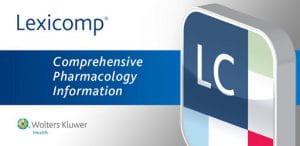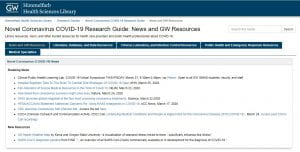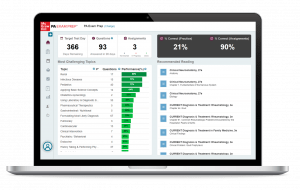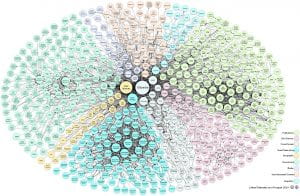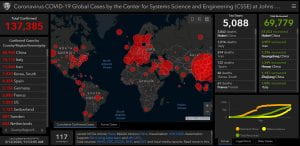Stuck at home during the pandemic? You are not alone. When it comes to research, the library still has plenty of resources you can use, even from a safe distance.
Himmelfarb Library has introduced a new search option that makes it easier for you to find online books, articles and other materials. When searching via Health Information @ Himmelfarb on the library's home page, you will now automatically search our "Online Access" collection and retrieve only books, articles, and other materials that you can access remotely. Once you've identified a resource you want, use the Available Online links to connect and either login with your GW NetID and password when prompted or connect to the GW VPN to gain access automatically.
The Online Access option is currently set as the default search option while the library building is closed, but the full range of search options is still available. We hope this change makes it easier for you to get the information you need, faster!
Speaking of resources...have you heard about Gideon?
What is it?
Gideon is an infectious disease database that allows Himmelfarb users to access information about diagnoses for a wide variety of diseases (including COVID-19) and serves as a fantastic epidemiology reference. You can use Gideon for:
- Diagnosis: enter patient information to view differential diagnoses and review treatment and country information.
- Research: Uncover new infectious diseases and pathogens in nearly every country around the globe.
- Epidemiology: Dig deep into the epidemiology and underlying organisms of every disease
- Mapping: More than 350 global maps to help illustrate position and scope of outbreaks
Access Gideon to explore this resource check out the online tutorial to learn more about this resource. Gideon is available to the GW community until May 23, 2020 courtesy of Wolters Kluwer.


